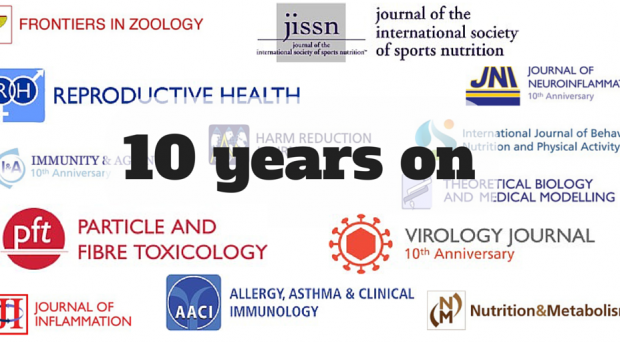
If open access had been around when you were starting your research career, what impact do you think it would have had?
José M. Belizán, Reproductive Health: When I started my research career open access was not available. Since I lived in a middle-income country I had no access to publications and I needed to travel to the scarce number of libraries which existed only in the capital city of my country. Nevertheless, it was impossible to get the publications I needed and so with any travel to a high-income country I invested days in the libraries and made a myriad of Xerox copies of articles to take home. Now, at home I can have access to the scientific literature. Still, I cannot believe such a miracle!
Linfa Wang, Virology Journal: The most significant impact would have been the much greater number of papers that I could have read during my PhD/Postdoc training. I can still remember the great difficulty in finding the right paper in a library by going through different indexing systems, and the time it took to just find one paper. As a poor PhD student, the other difficulty was to decide which paper to Xerox (copy) so that I could read it in great depth and make markings in the paper for future review. My knowledge base would be vastly different if I had had open access during my early training days!
Flemming Cassee, Particle and Fibre Toxicology: Papers might have been more frequently cited
Jose Antonio, Journal of the International Society of Sports Nutrition: It would have streamlined the way papers get published (made things easier).
Richard Warrington, Allergy, Asthma & Clinical Immunology: The impact of open access lies in the relatively easy dissemination of scientific information achievable by this format, and the direct access to many scientific journals via the agency of PubMed and PubMed Central.
What advice would you give to a researcher who’s publishing for the first time and isn’t sure about whether or not to publish open access?
José M. Belizán: The main objective of publication of research results, particularly clinical and epidemiological research, is to benefit global health. Through open access publications we can achieve this within the global community and universally share the results and provide the potential benefits of these results globally, without restrictions.
Linfa Wang: When everything is equal, one should definitely select open access journals, not only for fast publication and greater exposure, but also for access of budding researchers in underdeveloped nations who otherwise won’t be able to afford to read your great work!
Flemming Cassee: Contact authors of papers and ask to what extent they are satisfied, but in particular if a journal has a good Impact Factor, there is no need to doubt choosing open access.
Jose Antonio: Publish in a journal (open access or not) that is the best FIT for your paper.
Richard Warrington: If a researcher wishes their research to be read and cited as widely as possible, then open access is an important tool for this to occur. But it is also important for as many open journals as possible to have high impact factors and this requires that citation rates for articles published in these journal be equivalent to those journals that are not open.
You can read an Editorial by Richard Warrington and Paul Keith about AACI’s 10th anniversary on the journal’s website.
Comments